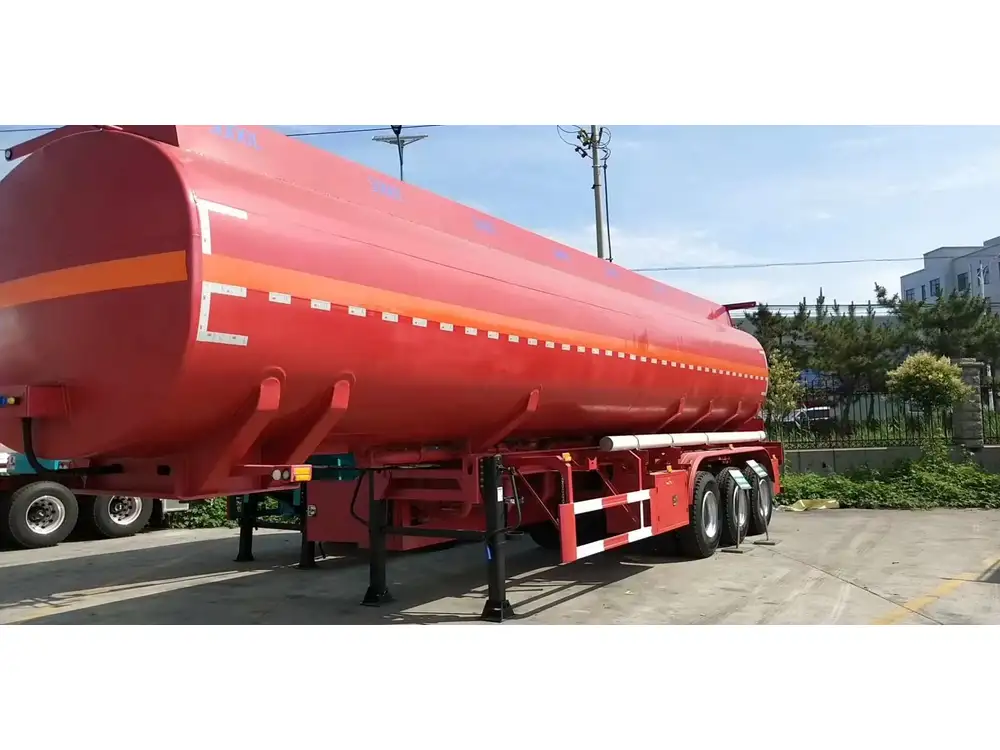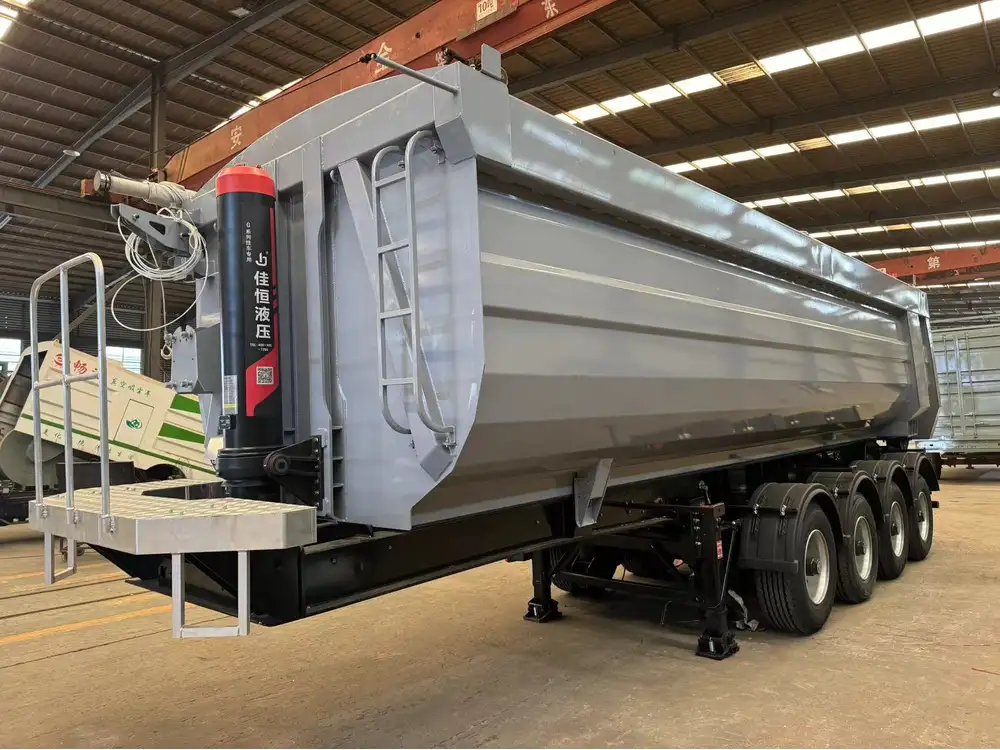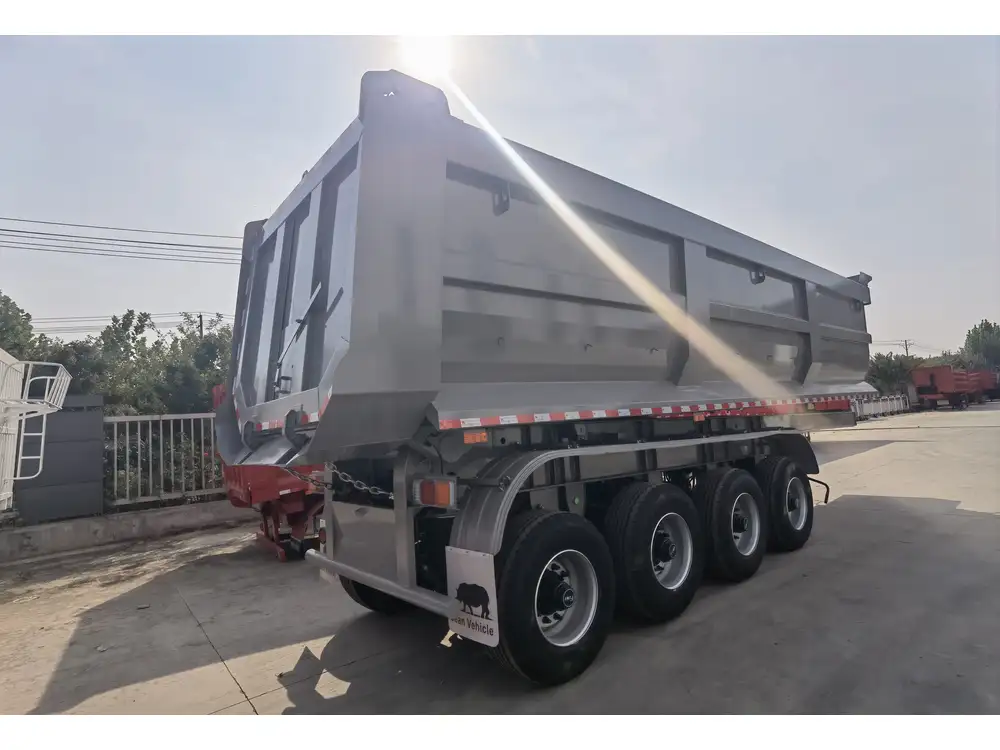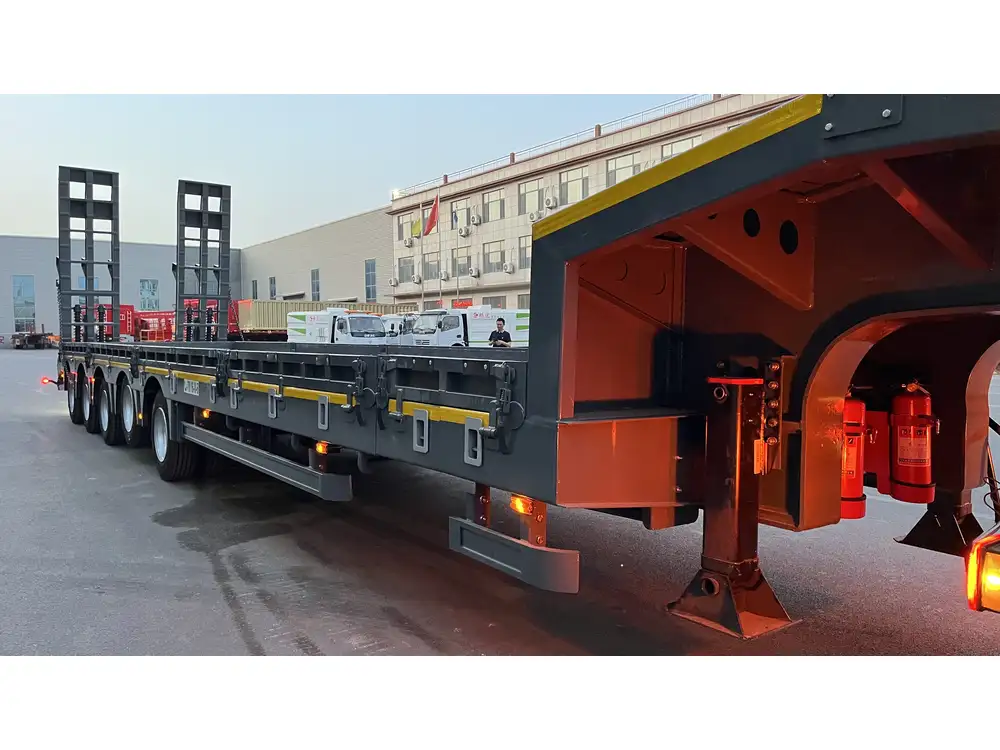What is a Trailer Dump Valve?
A trailer dump valve is a pivotal component in the hydraulic system of a semi-trailer, designed specifically to facilitate the unloading of bulk materials. Often located at the rear of the trailer, this valve controls the flow of hydraulic fluid, enabling the trailer’s tipping mechanism to function smoothly. By allowing for efficient operation, the dump valve significantly enhances productivity during loading and unloading processes.
Key Functions of a Trailer Dump Valve
The trailer dump valve performs several critical roles:
Hydraulic Control: It regulates the hydraulic fluid that powers the trailer’s tipping mechanism, ensuring that it operates safely and effectively.
Safety Mechanism: This valve is equipped with safety features to prevent accidental discharge of payloads, addressing potential hazards during operation.
Efficient Unloading: By controlling the flow of hydraulic fluid, it optimizes the speed and efficiency of unloading bulk materials, which can range from gravel to agricultural products.
Maintenance of System Integrity: It plays a vital role in maintaining the overall integrity of the hydraulic system, preventing fluid leaks and ensuring the longevity of the trailer.

How Does a Trailer Dump Valve Operate?
The Internal Mechanism
When the operator activates the dump valve, hydraulic fluid from the truck’s system is directed to the trailer’s lift cylinders. This action raises the trailer bed to an angle that facilitates the unloading of its contents.
Operating Pressure: The performance of a dump valve relies heavily on maintaining an adequate hydraulic pressure, typically between 2000 to 3000 psi.
Flow Control: The valve is engineered to adjust fluid flow, ensuring a consistent lifting speed which is essential for load stability.
Types of Trailer Dump Valves
Understanding the different types of trailer dump valves aids in selecting the proper model for specific applications:
| Type | Description | Applications |
|---|---|---|
| Manual Dump Valves | Operated by levers or switches, requiring operator intervention for operation. | Ideal for smaller trailers or specific applications where control is paramount. |
| Electric Dump Valves | Controlled electronically, these valves offer convenience and ease of use. | Suitable for larger operations needing quick responses and precise control. |
| Pneumatic Dump Valves | Utilizes air pressure to actuate the valve, providing a fast and efficient solution. | Common in construction and heavy-duty applications where speed is essential. |

Common Issues and Solutions
1. Leakages
Problem: One of the most common issues with dump valves are hydraulic fluid leaks, which can lead to inefficiencies and potential hazards.
Solution: Regular inspections and maintenance of seals and O-rings can mitigate leak issues. Additionally, using high-quality hydraulic fluids reduces wear.
2. Slow Response Time
Problem: A sluggish dump valve can hinder operations, leading to delays during unloading.
Solution: Ensure that hydraulic fluid levels are adequate and components are free of debris or blockages. Consider upgrading to electric or pneumatic dumps for better responsiveness.

3. Valve Jamming
Problem: Dirt, debris, or corrosion can cause a valve to jam, preventing proper operation.
Solution: Routine cleaning and maintenance are crucial for ensuring that all components are functioning smoothly. Lubrication of moving parts can also help in maintaining mobility.
Maintenance Tips for Trailer Dump Valves
Regular Inspection
- Frequency: Conduct inspections bi-annually or after heavy usage.
- Check Points: Focus on hydraulic lines, fittings, and connections for signs of wear and tear.

Fluid Replacement
- Hydraulic Fluid: Change the hydraulic fluid at least once a year or as recommended by the manufacturer.
- Contamination Check: Monitor for signs of contamination which can degrade the system’s performance.
Component Cleaning
- Valves and Cylinders: Clean all components to ensure optimal performance.
- Dealing with Grime: Use appropriate cleaners that do not harm the hydraulic system.
Professional Servicing
- When to Call Experts: If you notice persistent issues despite regular maintenance, it may be time to consult with a hydraulic specialist.
- End-of-Season Servicing: Schedule comprehensive service checks at the end of the working season to preemptively identify potential failures for the upcoming operational period.

Safety Considerations When Operating Dump Valves
Training Personnel
Ensure that all operators are well-trained in the safe operation of dump valves, focusing on:
- Correct Loading Procedures: Understanding the weight limits and balance during loading to prevent accidents.
- Emergency Protocols: Familiarity with emergency shutdown procedures in case of malfunction.
Use of Personal Protective Equipment (PPE)
Operators should always wear appropriate PPE, including gloves and goggles, to safeguard against potential injuries while loading or unloading materials.

Choosing the Right Trailer Dump Valve
Compatibility Considerations
When selecting a dump valve, consider the following factors:
- Trailer Type: Ensure compatibility with the specific trailer design and intended use.
- Weight Capacity: The selected valve must be able to handle the maximum weight and hydraulic pressures experienced during operation.
Performance Requirements
- Operation Speed: Determine whether you require a quick-release valve or a controlled dump.
- Hydraulic Efficiency: Select a valve designed for energy efficiency to minimize operational costs.

Budget and Quality
Investing in high-quality valves may seem costlier upfront, but they often lead to savings in maintenance and operational downtime in the long run.
Conclusion: Maximizing Efficiency with Trailer Dump Valves
A well-functioning trailer dump valve is indispensable for any operation relying on the quick and efficient unloading of bulk materials. By understanding its functionality, potential issues, maintenance needs, and safety considerations, operators can significantly enhance their productivity and ensure safer working conditions.
Emphasizing the importance of selecting the right type of dump valve and committing to regular maintenance will not only extend the lifespan of the equipment but also optimize operational efficiency across various applications. As the demand for robust and reliable trailer solutions continues to grow, the pivotal role of trailer dump valves cannot be overstated.
Investing in knowledge, equipment quality, and maintenance is essential for unlocking the full potential of your trailer operations. Make informed decisions that propel your business forward and ensure that every load is handled with precision and care.



